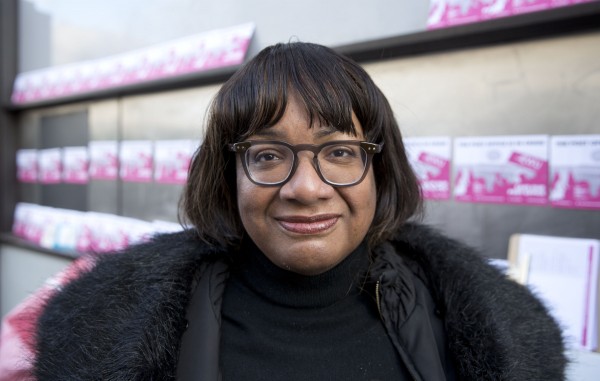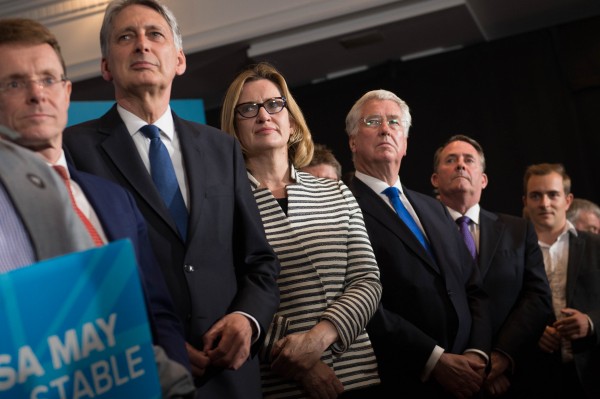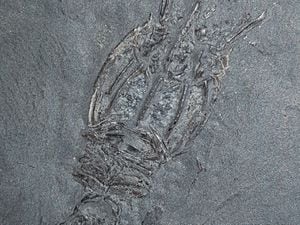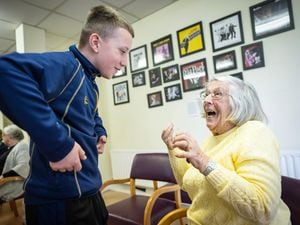All you need to know about the record number of women MPs being elected to Parliament
More than 200 women scored seats around the country.

More than 200 women MPs have been elected in the 2017 General Election, a record number which means that just under one in three MPs (32%) are female.
Some 207 women, out of 649 (minus Kensington) have been elected to seats around the country, a gain of 11 since the 2015 poll and by-elections since, which saw a total of 196 women voted into Parliament.

Previously, the highest number of women elected in a single general election was 191, in 2015.
There was a stark difference in gender balance between Labour and the Tories, with women MPs in Jeremy Corbyn’s party representing almost half (45%) of Labour’s constituencies. For Theresa May’s Conservatives, just over one in five MPs elected were female.
For Labour, this represents an increase of 1%, while the Tories faced no change.
This may come as a surprise to some as Theresa May has often championed her party as a beacon for gender representation in Parliament, having produced the UK’s only female prime ministers – Margaret Thatcher and herself.
In terms of smaller parties, the Liberal Democrats have tripled their number of female MPs, from 11% to 33%, a total of four women representatives.
The SNP have slightly increased their share of female MPs as, although they lost seats, just over one third (34%) of their remaining constituencies were held by women.
The key MPs who are new to Westminster
Here is a look at some of the freshly elected women MPs in this year’s poll.
Preet Gill
This election produced the UK’s first ever female Sikh MP, Preet Gill, who was elected MP for Birmingham Edgbaston with a majority of 6,917 votes, up 10% on Labour former MP Gisela Stuart’s majority. Uniquely, the seat has historically been represented by women MPs both Labour and Tory since 1953.
Gill, a Labour Co-op representative, was previously a councillor for Sandwell in the West Midlands and championed mental health issues during her tenure. She was born and raised in Edgbaston as the “daughter of a bus driver”, she says on her website.
Her journey into politics was inspired by her father’s friend and the UK’s first Sikh peer, Lord King, who she says pushed her to “make a difference”.
During her career, she has campaigned passionately for the representation of Sikh and BAME women in society.
Marsha de Cordova
In one of many shocks turned up by this year’s result, Labour’s Marsha De Cordova surmounted an 8,000 Tory majority to represent Battersea, a seat held by Jane Ellison since 2010.
The MP, who is visually-impaired, is a campaigner for disability rights and in her victory speech vowed to lobby Parliament to improve accessibility in public places.
She prided her team on running a grassroots campaign and on her Twitter, expressed her honour at being elected, saying: “I will work for a better future for all my constituents”.
Kirstene Hair
In Scotland, where the Conservatives emerged with the most gains, newly-elected MP for Angus Kirstene Hair took over from the SNP’s Mike Weir, who has held the seat since 2001. The constituency was traditionally a Scottish Nationalist stronghold, secured by the party since 1997.
Hair’s win, with a majority of 2,644 after overturning an SNP majority of over 11,000, was praised on Twitter by Scottish Tory leader Ruth Davidson. In her speech, Hair said she would serve the public, and not be a “party servant”.
Following the result shortly before 2am, she told the Courier Angus paper that she was “absolutely delighted to be representing the area that I was born and brought up in”.
Key MPs who retained their seats

Home Secretary Amber Rudd retained her Hastings and Rye seat by a slim majority of 346, following two recounts after being closely contested by Labour’s Peter Chowney. Her return tipped the number of women MPs in the Commons to a record 197.
Green Party co-leader Caroline Lucas’ win in her Brighton Pavilion seat led the number of women MPs to surpass the 200 mark. She almost doubled her majority in the constituency and earned nearly double the number of votes than her closest competitor, Labour’s Solomon Curtis.
Diane Abbott, who was taken ill in the final leg of Labour’s campaign and temporarily replaced as Shadow Home Secretary, held on to her Hackney seat with a stomping majority and 75% of the vote, with many on Twitter lauding her success in the face of adversity:
It was 99 years ago that the first woman MP, Constance Markievicz, was elected to the Commons following the Parliament (Qualification of Women) Act, which gave women aged 21 and over the right to stand for election.
However she did not take up her seat as she was a member of Sinn Fein.
UK politics has come a long way since then.





